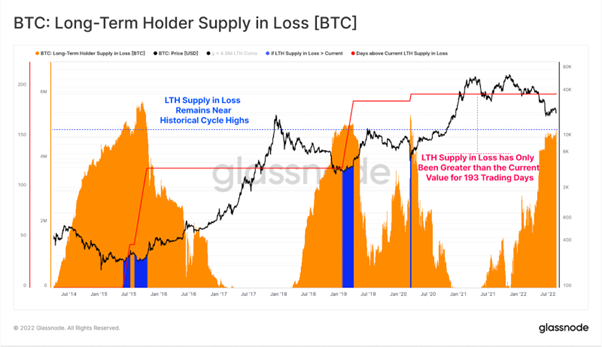Bitcoin Price: US$ 21,529.12 (+0.60%)
Ethereum Price: US$ 1,665.41 (+2.51%)
TRIBE Volume And Price Spike As Fei Protocol Winds Down
- SudoRare, NFT exchange created as a fork of sudoswap and LooksRare, pulls the rug. Project team drains 519 ETH only 6 hours after launch.
- Celsius files a counter-lawsuit against KeyFi, former money manager for the firm. Celsius also files a lawsuit against Prime Trust, crypto custodian.
- Silo Finance launches beta version on Ethereum mainnet. Silo is a money market where users lend or borrow in risk-isolated markets with ETH as the bridge asset.
- Uniswap community votes to create the Uniswap Foundation and fund it with $74 million, out of which $60 million is marked for grants.
- Tether states that it will not freeze addresses linked to Tornado Cash since it has not received any such instructions from law enforcement.
- Since August 19, TRIBE daily volume has spiked 20x from $3 million to $61 million, while the price has increased 56% from $0.14 to $0.22 per token. This follows the forum post made by Fei Labs that proposes the dissolution of Tribe DAO.
- According to the proposal, the DAO will burn all protocol-owned FEI (currently $79 million) and convert all treasury assets into DAI (currently $142 million). Users who hold FEI tokens will be able to redeem them for DAI on a 1:1 basis.
- Users who hold TRIBE tokens will be able to redeem for any remaining value that is not backing FEI tokens. The current volume and price spike is likely due to speculation on the amount of value that can be redeemed by TRIBE holders.
- The proposal also recommends paying victims of the Fuse hack using the 57m TRIBE tokens in the RGT peg exchanger. The hack occurred in Apr-2022 with Rari Capital’s Fuse lending protocol, resulting in a loss of $80 million.
- Fei Protocol was the first to experiment with protocol-controlled value (PCV), where the DAO owns the collateral backing its stablecoin. The protocol also implemented one of the most ambitious DAO mergers by combining with Rari Capital.
- Since early 2021, crypto derivatives have taken off at a wild pace. But the success of DeFi derivatives’ has been restrained to a select few exchanges. Most derivatives traded in crypto today are tied to the price of a crypto asset.
- While there is obvious market-fit for these instruments, there’s an entire world of derivatives beyond single-asset instruments. An interesting type of derivative, ones centered around interest rates and yields, started to pop up in DeFi early last year. But their existence has gone broadly unnoticed by the market.
- While extremely popular in TradFi, yield derivatives and fixed income products have struggled to attain usage. When looking at an aggregate of the DeFi derivatives market, we can see that yield derivatives – including fixed income – are largely overshadowed by asset perpetuals on protocols like dYdX.
- On the surface, this is surprising. At around $340T, interest rate derivatives (IRDs) are the largest market in TradFi. IRDs include instruments like interest rate swaps, forward rate swaps, and zero coupon bonds.
- Meanwhile, fixed income products, like T-bills and corporate bonds, are some of the most popular financial instruments, with a cumulative size of roughly $120T. In fact, these markets are so large that there is even debate on how to measure them.
- DeFi fixed income and yield derivatives seemed like a sure bet to those who believed DeFi trends would converge with TradFi soon. But their total TVL is less than $200M cumulatively despite being live for more than 18 months.
GameFi developers could be facing big fines and hard time
- Tokens related to cryptocurrency games — known colloquially as “GameFi” — were worth a cumulative total of nearly $10 billion as of mid-August, give or take a few billion. (The number may vary depending on whether you want to include partially finished projects, how you count the number of tokens that projects technically have in circulation, and so on.) In that sense, whether the games are legal is a $10 billion question that few investors have considered. And that’s an oversight they may soon regret.
- That’s because a bipartisan consensus appears to be forming among legislators in the U.S. that the industry needs to be shut down. They haven’t addressed the issue specifically — good luck finding a member of Congress who has uttered the word “GameFi” — but there are at least two bipartisan proposals circulating among senators that would effectively eject these gaming projects from American soil.
- On Wednesday, U.S. dollar stablecoin issuer Tether (USDT) said that it would not freeze smart contract addresses sanctioned by the U.S. Office of Foreign Assets (OFAC) Control’s Specially Designated Nationals and Blocked Persons (SDN) list for cryptocurrency trail-mixer Tornado Cash. In explaining the decision, Tether said:
- “So far, OFAC has not indicated that a stablecoin issuer is expected to freeze secondary market addresses that are published on OFAC’s SDN List or that are operated by persons and entities that have been sanctioned by OFAC. Further, no U.S. law enforcement agency or regulator has made such a request despite our near-daily contact with U.S. law enforcement whose requests always provide precise details.”
- Tether pointed out that unilaterally freezing wallet or smart contract addresses could be a “highly disruptive” and “reckless” move. “It could alert suspects of an impending law enforcement investigation, cause liquidations or abandonment of funds and jeopardize further evidence gathering,” the issuer said.
- All U.S. persons and entities are prohibited from interacting with the digital currency mixer’s USDC and Ethereum smart contract addresses on the SDN list, subject to stiff criminal penalties for violation. However, Tether is a Hong Kong-based issuer and neither onboards U.S. persons as customers nor conducts business in the United States, although it voluntarily follows certain U.S. regulations as a part of compliance.
Bug bounty quadruples for Ethereum network — Up to $1M payouts ahead of Merge
- The Ethereum Foundation has announced it will be increasing the network’s bug bounty payouts fourfold ahead of the blockchain’s transition to proof-of-stake.
- In a Wednesday blog post, the Ethereum Foundation said between Aug. 24 and Sept. 8, all “Merge-related bounties for vulnerabilities” will be quadrupled for white hats testing the network. According to the foundation, identifying “critical bugs” — those that have a high impact or likelihood of a high impact on the blockchain — will be worth up to $1 million. The bounty program also allows submissions for low, medium and high-risk bugs.
- As part of the transition to proof-of-stake, the foundation said the Ethereum Network “must first be activated on the Beacon Chain with the Bellatrix upgrade,” an event expected to happen on Sept. 6, with the Merge likely following between Sept. 10 and 20. Core developers previously announced a tentative Merge date of Sept. 15 when the Total Terminal Difficulty, or TTD — the difficulty of the final mined block — will trigger the end of proof-of-work and the start of proof-of-stake.
Ethereum Merge in trouble? Developers find bugs ahead of the planned update
- While the upcoming ETH Merge is one of the most anticipated events in the crypto community at the moment, it’s not free from hiccups. However, Ethereum developers are quick to respond to the issues that arise.
- Péter Szilágyi, an Ethereum software developer, has announced on Twitter that they have found a regression that results in a corrupted state. He explained that it was probably one of the pull requests that had merged toward the new storage model or online pruner.
- In a later update, the developer highlighted that the problem will likely affect those who are running the release in terms of corrupting their database and resulting in the loss of data. He added that the issue of data loss happens on shutdown, and this is why their tests were unable to catch the bug.
- Despite the issues, the developers were able to provide a fix after a day. Go Ethereum released a hotfix to patch the bug. The team advised those who’ve updated to roll back and rerun and see if everything is working fine.
Uniswap eyes NFT financialization, in talks with lending protocols
- Crypto exchange Uniswap engaged in talks with multiple nonfungible token (NFT) lending protocols, according to a social media post from Uniswap’s head of NFT product Scott Lewis.
- In the tweet, Lewis highlights the company’s interest in tackling both liquidity issues and the “information asymmetry” surrounding NFTs.
- While Uniswap’s goal for these talks and potential collaborations with lending protocols is NFT financialization, the crowd on Twitter came back with a double-sided response. Some users deemed the decision as a step toward solidifying the future of decentralized finance, simply known as DeFi:
Australia’s Northern Territory mulls landmark crypto gambling regulation
- Australia’s Northern Territory Racing Commission (NTRC) is consulting with its gambling licensees over a tentative proposal to incorporate crypto wagering as part of the regulated gambling industry.
- For the most part, gambling in Australia is regulated at the state level and not federally. The NTRC oversees all gambling and wagering companies that choose to be licensed in the Northern Territory (NT), including global wagering companies such as Betfair, Entain Group, Draft Kings and Sportsbet.
- As it stands, the NTRC has sent a private document out to licensees, which seeks input and feedback on what the regulatory landscape could look like to get crypto wagering off the ground in the NT.
- Julian Hoskins, the principle of one of Australia’s major gambling law and regulatory advisory firms Senet, has been given access to the private document and discussed with Cointelegraph what the NTRC is looking for at this stage:
- “What it provides for is a licensee, say a sports bookmaker who holds a license in the Northern Territory, who wants to accept cryptocurrency for striking or paying out wages, [is that they] need to apply for consent to be able to do that. And there’s certain conditions that attach to that.”
#Bitcoin Long-Term Holder Supply in Loss remains near historical cycle highs, with only 193 out of 4421 trading days (4.4%) closing with greater BTC denominated losses.
This suggests LTH profitability is under extreme bear market stress.

